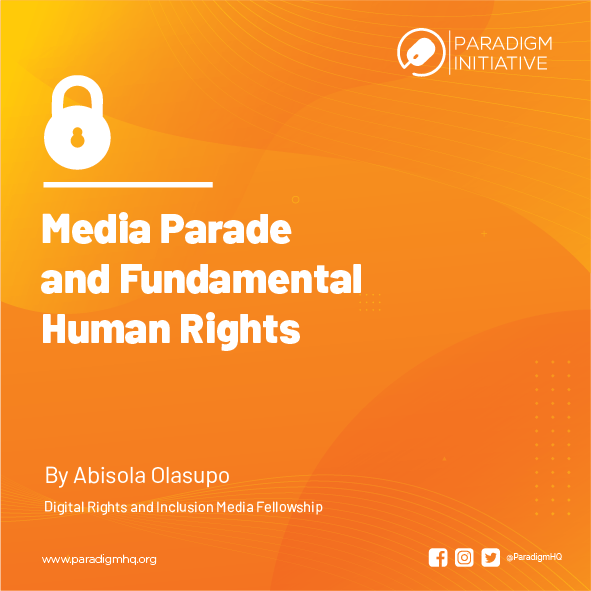Almost inevitable every week in Nigeria is a media parade of suspected criminals from state and divisional commands of different security agencies in the country.
During these parades, spokespersons or heads of the security agencies narrate how the suspects were arrested and grant journalists access to interview the suspects who are presumed innocent until proven guilty by a court, according to the Nigerian Constitution.
Sometimes, the paraded persons are later discovered to be innocent of the crime they are accused of committing. But before their innocence is proven, They have been, tacitly, demonised on pages of newspapers and in electronic media.
In 2019, human rights activist Femi Falana, SAN, approached a Federal High Court in Abuja, asking it to declare the pre-trial media parade of criminal suspects by security and anti-corruption agencies in the country illegal and unconstitutional.
Falana argued that “ every individual shall have the right to have his cause heard. This comprises the right to an appeal to competent national organs against acts of violating his fundamental rights as recognised and guaranteed by conventions, laws, regulations and customs in force; (b) the right to be presumed innocent until proven guilty by a competent court or tribunal.”
The case is yet to be heard by the court.
But security agencies in Nigeria have over the years defended the media parade of suspects, claiming they do not tamper with or violate suspects’ fundamental human rights. They claimed it helps to correct vices in the society and also update or inform citizens about what the police are doing about their safety.
The Lagos State Police spokesman Bala Elkana said a person who is being paraded is still referred to as suspects and not criminal by media organisations, the dignity and right of such person is protected.
“We have guidelines on how to carry out a media parade of suspects,” Elkana said.
“The regulation makes it clear for us to create an avenue for citizen to know what the police is doing about their safety,” he added
He further stated that it is not unlawful to parade citizens who are being prosecuted because of any criminal offences.
”It is not unlawful and debatable because it is not unlawful to practice journalism. The best way to inform citizens is to bring the person who is involved in that criminal act to explain how he did it and there is nothing unlawful about passing information,” Elkana said.
“It is not to pronounce him guilty but for citizens to be able to understand how and what crime he/she committed.”
But a lawyer and Human Right activist Tope Akinyoade said the media and public parade of suspects have no legitimacy under Nigeria.
“The law is that a suspect is innocent of any offence until he has been tried and convicted,” Akinyoade said.
“It is therefore overreaching for security operatives to parade innocent citizens. The only exception to this is ‘Identification Parade’ which is allowed by law. But there is a clear distinction between media parade and identification parade.”
The Paradigm Initiative Executive Director Gbenga Sesan stated that nothing will change until people speak up, or seek redress.
“One of the ways to stop rights violations is to challenge that violation using the same courts, in addition to various institutions (that work in social justice — either for offline or online cases) working with the judiciary so that judges can caution such security agencies,” Sesan said.
“If a few security agencies lose cases for parading suspects and even hurting them in the process, they may learn a lesson or two about the place of dignity even for accused people.”
Sesan also asked the media to create their narratives in such a way that suspects are not seen as criminals until proven guilty in court.
“There is a huge narrative role that the media can play to reduce the public shaming of suspects, especially those who are simply victims of law enforcement agencies carrying out the rights violation agenda of public officials.” Sesan said.
Written by Abisola Olasupo – Paradigm Initiative’s Digital Rights and Inclusion Media Fellow.


